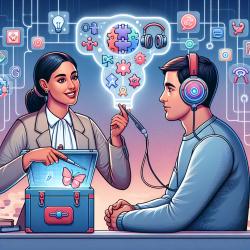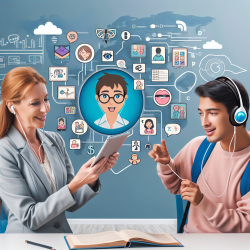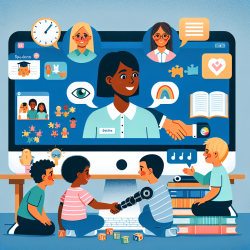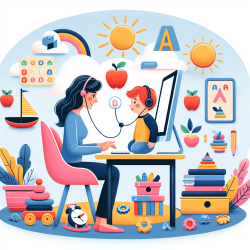In the rapidly evolving landscape of education, Speech Language Pathologists (SLPs) often find themselves at the intersection of traditional practices and innovative solutions. The shift towards online therapy has brought about both opportunities and challenges, particularly in special education settings. TinyEYE is dedicated to empowering SLPs by providing the tools and resources necessary to navigate this new terrain effectively.
For many SLPs, the transition to online therapy can evoke a sense of being lost. The absence of physical interaction, the nuances of body language, and the immediate feedback that in-person sessions provide are just a few elements that are difficult to replicate in a virtual environment. However, by creating and utilizing effective tools, SLPs can bridge this gap and continue to deliver high-quality therapy to their students.
Understanding the Challenges
Before diving into the creation of tools, it is crucial to understand the unique challenges that online therapy presents. These challenges include:
- Technical Difficulties: Ensuring that both the therapist and the student have reliable internet connections and are comfortable using the required technology.
- Engagement: Keeping students engaged and motivated during virtual sessions, which can be more challenging than in-person interactions.
- Customization: Adapting therapy materials to fit the online format while still meeting the individual needs of each student.
Creating Effective Tools
With these challenges in mind, SLPs can develop tools that enhance their online therapy sessions. Here are some strategies to consider:
- Interactive Digital Materials: Utilize interactive PDFs, online games, and virtual manipulatives that can make sessions more engaging and hands-on.
- Visual Supports: Incorporate visual aids such as digital flashcards, picture schedules, and visual cues to support communication and comprehension.
- Data Collection Tools: Use online platforms that allow for easy tracking of student progress, enabling SLPs to make data-driven decisions.
- Collaboration Platforms: Leverage tools like shared documents and virtual whiteboards to facilitate collaboration with students, parents, and other educators.
Building a Supportive Community
One of the most significant advantages of the digital age is the ability to connect with other professionals. SLPs can benefit from joining online communities and forums where they can share resources, discuss challenges, and seek advice. Platforms like TinyEYE offer opportunities for SLPs to connect, collaborate, and grow together.
Maintaining Mental Health
It's essential to acknowledge the mental health of both the students and the therapists. The transition to online therapy can be stressful, and maintaining a balance is crucial. Here are some tips for SLPs:
- Self-Care: Prioritize self-care by setting boundaries, taking breaks, and engaging in activities that promote well-being.
- Professional Support: Seek supervision or peer support to discuss challenging cases and reduce feelings of isolation.
- Student Well-Being: Incorporate activities that promote mental health and emotional regulation within therapy sessions.
Conclusion
The journey of adapting to online therapy may initially feel daunting, but with the right tools and support, SLPs can continue to make a significant impact in the lives of their students. TinyEYE is committed to providing the resources and community needed to navigate this path successfully. By embracing innovation and collaboration, SLPs can transform challenges into opportunities, ensuring that every student receives the high-quality therapy they deserve.
For more information on how TinyEYE can support your online therapy practice, visit our website or join our professional community today.










